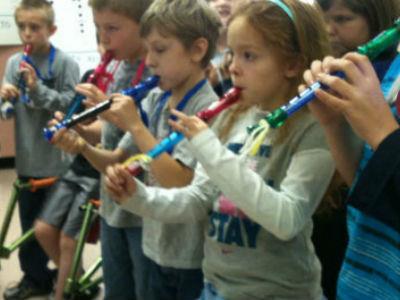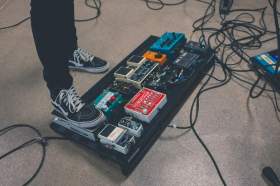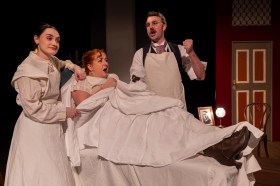In 2014, the new Australian Curriculum in Music will be ready for implementation. But, it will not be taught in most Victorian primary schools because the teachers do not have the necessary competencies.
Recent research finds that 63% of Australian primary schools offer no classroom music. This study does not provide state breakdowns, but since virtually all government primary schools in Queensland and Tasmania and most independent schools employ specialist music teachers, the proportion in other states must exceed 80%. Extrapolation from another research report finds that only 23% of public schools, primary and secondary, offer a music education program that would meet the recommendations of the National Review of School Music Education (2005), as compared with 88% of independent schools.
So it is probable that most Victorian primary schools do not have an effective state-funded music education program. While principals may choose to hire a music teaching specialist, if they do not do so, the responsibility for music teaching passes to the classroom generalist teacher. Nationally, on average, these teachers have received 17 hours of mandatory music education in their undergraduate degree, or 10 hours for a qualifying postgraduate degree.
This does not equip them to deliver any credible music curriculum, including a national curriculum. In Finland, they would have received 270 hours of music education, in Korea 160 hours; in our other PISA-ranked superiors Shanghai, Hong Kong and Singapore, music is taught to all children by specialists.
It is reasonable to conjecture that the reported absence of music instruction in government primary schools is a consequence mainly of generalist teachers’ lack of music education and therefore, competence and confidence.
As noted, 88% of independent schools nationally have an effective music program. In the public schools, parents in affluent areas very often bypass the deficiencies of state provision by paying for an after-school music program which might include instrumental lessons and/or various types of performing ensemble. Music education becomes pay for play, a preserve of the affluent. Provision is highly inequitable. Children from less affluent areas are denied the advantages of a music education, whether intrinsic or instrumental, recreational or career-bound.
The situation is no more than ameliorated by provision of music education in secondary school. In any case, Petrova found that 34% of secondary schools nationally do not offer classroom music and Lierse detailed the complicated situation in Victoria in her 1996 study. It does not suffice to begin music education in secondary school any more than it would suffice to begin reading or mathematics there.
Further, the lack of any consistency in primary school music education means that the musical skills of students at secondary school admission vary from zero to virtuosic, making the structuring of the secondary school program extremely difficult.
There are impossible demands on classroom teachers. As already noted, all governments have agreed that there should be Australian Curricula taught in five art forms: dance, drama, media arts, music and visual arts.
If Australia’s Ministers for Education accept the proposed Australian Curriculum for the Arts, with separate curricula for each of the five art forms including music, it will be tested in the latter half of the year and available for implementation beginning in 2014.
Under present arrangements, the primary school generalist teacher will be expected to deliver not only the music curriculum, but the curricula in the four other art forms. The writer is skilled in music but cannot imagine performing or teaching dance, or drawing or painting. He does not have those aptitudes or skills – they were not planted in his primary years, and were he a school teacher, he cannot conceive that he could gain them to a level that would help his students. Add knowledge and skills in literacy, numeracy, a number of sciences, history, geography, languages and physical education: what are we expecting of our primary school teachers?! The expectation is quite unrealistic.
Teachers learning to teach the new history curriculum essentially will apply existing literacy skills to new content. There is a different problem faced in music and other arts. While they engage with literacy and mathematical skills, there are other fundamental skills that are not built upon literacy and numeracy: e.g. skills of listening, creation and performance – the division and assembly of time, pitch, timbre etc., skills of expressiveness, fine motor skills: skills collectively involving a large part of the brain and mind. Teachers uneducated in music learning to teach the new music curriculum cannot succeed by applying literacy skills to new content: they must learn the core musical skills from the ground up.
Following are three proposals for the systematic introduction of specialist music teachers to serve all primary school students:1) The ‘Hong Kong solution’: There are complaints from within and without the education systems that teachers are not competent in the range of subjects they are supposed to deliver to students. Subject area inadequacies appear to be far wider than those identified in music and the arts. We here introduce a special possibility that we believe would bring benefit to the entire school system. Victoria could lead the country in its adoption.
In Hong Kong and Singapore, there is an overall move towards specialist teachers – in fact, in Hong Kong there are now no generalist primary school teachers. We extrapolate to suggest a solution for Australia.
In this scenario, teachers choose to specialise in three or four subjects. Undergraduate courses for primary school teachers offer options: say three complementary options, each of four subjects. (Some education could take place in specialist areas of the universities rather than in the Schools of Education. For instance, musical skills could be taught in Schools of Music, overcoming sometimes serious deficiencies reported in some Schools of Education.) School students are taught by three teachers, between them delivering the entire curriculum. All subjects are taught competently by teachers who have chosen subject specialisations to match their own enthusiasms and talents.
Pastoral care is enhanced because it is divided among the team of teachers – no student is hostage to the relationship with a single personality. In Hong Kong, one of the teachers is assigned as the official class teacher for administrative purposes.
The operating cost for this system would remain essentially unchanged. The same number of students learn from the same number of teachers in the same amount of class time overall. The work is simply distributed differently. There would be a cost in teacher retraining to enhance existing skills in preferred subjects. The system could be introduced progressively over some years.
In Victoria, there would continue to be a need for some generalist teachers to serve in small country schools.
2) A pilot project to test the use of specialist music teachers: This is a recommendation of the Annual Assembly of the Music Council of Australia in 2012.
Form two clusters of primary schools. Each cluster is served by a group of highly competent specialist music teachers, at least three teachers per cluster. More teachers/larger clusters would reduce the probability of anomalous results. The teachers deliver a music program based upon the national curriculum, with characteristics and sufficient contact time to produce high quality student outcomes. The program would be capable of scaling up for introduction across the system.In the second year, improvements could be introduced, based upon the experience of the first year. Form two other clusters of primary schools, of similar characteristics to the experimental schools, to serve as a control group. They offer the music education programs currently normal in the Victorian system. (This could include a situation where in some or most schools, no music is offered.) Mount an evaluation program, possibly in collaboration with a university or with researchers chosen by competitive tender, to evaluate both intrinsic and instrumental outcomes. Compare outcomes for experimental and control groups.
Assuming that the outcomes show the advantage of the experimental approach, the program should then be modified for improvements and then progressively implemented across the system.
3) Progressive introduction of specialist music teachers to all schools: This solution probably would deliver the highest quality music education. It would be designed based upon an assessment of existing programs in Queensland, Tasmania, in Australian independent schools, and in school systems overseas. It could also take as its foundation the learnings from the pilot project above. The program would deliver at a high level at least the content of the Australian Curriculum in Music. From the point of view of cost, it would not be as optimal as proposal 1.
It would be introduced progressively because of the need to train sufficient specialist teachers. Strategies could include:
- Attracting and training skilled musicians in pedagogy
- Supporting musically skilled classroom teachers in achieving specialist qualifications
- Increasing intake of relevant programs in university schools of music
- Mounting intensive programs organised by the Department of Education
Consideration could be given to basing teachers in external ‘music services’ modelled upon or adapted from those in England. These could maintain and develop teachers’ skills, program innovations, and teacher enthusiasm and morale. There could be an option for teachers to teach less than full time in order to leave time to maintain performing careers – to the benefit of everyone.





